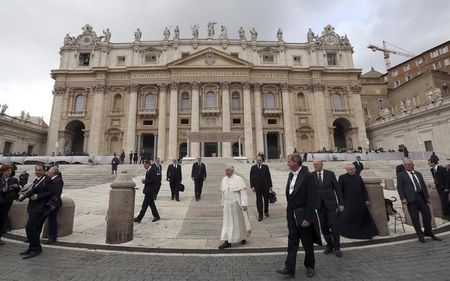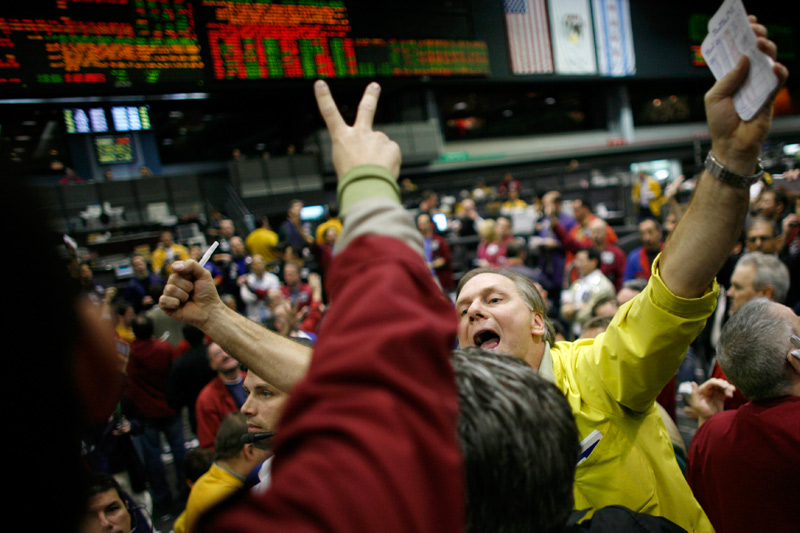By Philip Pullella
VATICAN CITY (Reuters) - The Vatican has issued staff with a manual on economic ethics and accountability, as part of Pope Francis' effort to clean up the Holy See's finances after a rash of scandals.
The 45-page Financial Management Policies was sent to all Vatican departments this week by the Secretariat for the Economy, a special unit set up earlier this year, according to an internal cover letter seen by Reuters.
The letter, signed by two cardinals, said the manual contained guidelines "that are an essential first step in the reforms of the economic and administrative practices of the Holy See, being requested by the Holy Father".
From Jan. 1, all departments will have to enact "sound and efficient financial management policies" and prepare financial information and reports in a "consistent and transparent manner" that adhere to international accounting standards.
The manual provides "a clear framework for accountability of those entrusted with the resources of the church," the letter declares.
The letter, and a separate, internal announcement from the Secretariat of the Economy, both say that each department's financial statements will be reviewed by one of the world's major international auditing firms.
Until now, only the troubled Vatican bank and a handful of other departments had been audited by outsiders.
The Argentine pope was given a mandate by the cardinals who elected him in 2013 to clean up after a series of financial scandals.
The letter is signed by Australian Cardinal George Pell, head of the secretariat, and German Cardinal Reinhard Marx, both outsiders Francis brought in oversee the Vatican's often muddled finances after decades of control by Italians.
Vatican sources said heads of some departments had resisted attempts to put them under the control of Pell's department.
NO EXCEPTIONS
But the letter makes clear the new rules will apply to "all entities and administrations of the Holy See and Vatican City State", putting that part of the statement in bold letters.
The Vatican has already taken major steps to clean up its bank, known as the Institute for Works of Religion, hit by a spate of scandals over the past few decades.
In the past 20 months, the bank has introduced reforms to make it more transparent and compliant with international norms against money-laundering, and has closed many suspicious accounts.
The bank's investment business is to be hived off, allowing it to concentrate on its original aim and focus on payment services for religious orders, Vatican employees and charities.
Monsignor Nunzio Scarano, who worked for 22 years as a senior accountant in one department, is on trial on charges of using his position to smuggle millions of dollars into Italy from Switzerland for rich friends to avoid Italian taxes.

Scarano is the subject of a separate trial on money-laundering charges connected to the Vatican bank.
(Reporting by Philip Pullella; editing by Andrew Roche)
